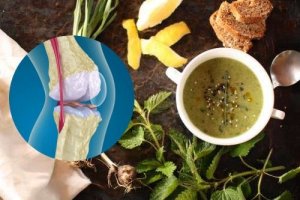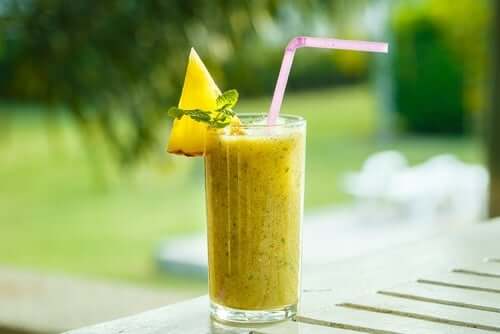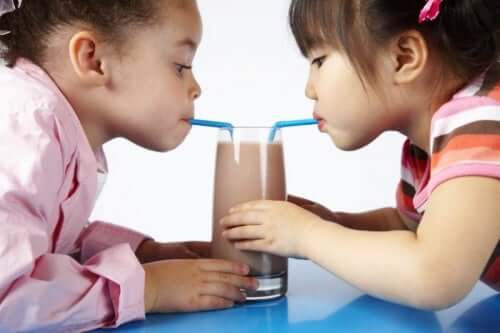Natural Remedies for Knee Problems

Knee problems are very common and can happen at any age, interfering with many activities. There are natural and healthy options that complement the strengthening of ligaments and tendons in your knees, which thus allow you to enjoy a better quality of life.
The knee is one of the most important joints in your body. When it’s in good condition it moves smoothly and easily, allowing you to walk and run without problems.
If you suffer from wear on your knees and a lot of pain, then this article will interest you. Before anything else, you should know the function of tendons and ligaments:
- Tendons are a fibrous tissue responsible for joining the muscles to the bones.
- Ligaments, on the other hand, are also a fibrous tissue, but they join different bones to each other to keep them stable.
According to specialists from the clinic “Las Condes”, specializing in traumatology and orthopedics, when pain is located only in one knee, the most frequent causes are usually problems with the meniscus, tendinitis, or cartilage injuries. That is, it’s linked to a sports trauma or other specific trauma.
When both hurt, it’s normally due to issues of poor alignment or patellar diffusion. Because of this, if you suffer from constant or very strong pain in your knee joints, don’t hesitate to consult a specialist, since nothing proposed in this article is a medicine by itself.

You should know that the tendons and ligaments also need adequate nutrition, they need the necessary vitamins and minerals to be strong. Discover all of this important information to improve your quality of life.
In this article, we offer you food options that can help prevent degeneration of ligaments and tendons, and thus prevent unwanted injuries or pain.
Formula rich in collagen to strengthen ligaments and tendons
Gelatin is an excellent source of nutrients for tendons and ligaments according to some studies. Neutral gelatin is the healthiest, since it contains a larger amount of so-called “collagen protein”. Additionally, this food contributes to the health of your nails, hair, and skin.
You might like: Joints: Their Importance and Necessary Supplements
Try the following recipe:

What do I need to prepare this?
- A ripe plantain
- Orange juice
- 40 g .(1.7 oz) of gelatin
- 60 g. (2.2 oz) of honey
Preparation
- First, squeeze an orange and mash the plantain. Ideally you should use a ripe plantain, since they provide the most nutrients.
- Make a smooth porridge with the plantain, and add two tablespoons of honey.
- Next, start to make the flavorless gelatin. Dissolve it first in water and then heat it so that it starts solidifying. Separately, heat the orange juice, and then add the gelatin little by little to avoid lumps.
- Now you should choose a good mold. Put the mixture of gelatin and orange juice in the mold and put it in the fridge. Wait between 15 and 20 minutes for it to set.
- Once it sets, take out the mold, put the gelatin on a plate and put the plantain and honey purée on top or to the side.
Additionally, you already know that plantains are a natural food that gives you energy, full of proteins and carbohydrates perfect for revitalizing your body. When you add the vitamin C of oranges, you get a “medicinal cocktail” that’s worth taking at least twice a week.
Oat, pineapple and cinnamon smoothie for knee problems
This smoothie is rich in magnesium, silicon, vitamin C, and bromelain. Pineapple is what provides the last component, bromelain, which is ideal for combating the common inflammation that you usually suffer with knee problems. We recommend you drink this smoothie every morning to maximize its effect.

What do you need to prepare your oat and pineapple smoothie?
- 150 g. (6 oz) of instant oats
- 250 ml. of water
- Pineapple juice
- Orange juice
- 40 g. (1.7 oz) of honey
- 7 g. (0.25 oz) of ground cinnamon
- 40 g. (1.7 oz) of crushed almonds
Preparation
- Start by boiling the water, and then add the instant oats to the pot. Stir carefully and let it cook. Next, put the natural pineapple juice, orange juice, honey, cinnamon, crushed almonds, and cooked oats into the blender.
- Blend until the mixture is smooth. For a hot day, add a few ice cubes to cool down.
Nettle and lemon juice
Nettle is known as an effective treatment for gout, a common form of arthritis, and thanks to its mineral content, it can help your body reconstruct cartilage. Combined with the properties of lemon, nettle makes this drink a good option to help strengthen the ligaments and tendons in your knees, and in your body in general.
What do you need?
- 80 g. (3 oz) of nettle
- Juice from one lemon
- A liter of water
Preparation
- Start by boiling a liter of water. Next, add the 80 grams (3 oz) of nettle; they can be fresh or dry, it doesn’t matter. Allow it to boil and then remove from heat and let cool for 15 minutes.
- You’ll have to strain the infusion, and then put it in a glass bottle. Close the bottle and let it sit for another hour. After the hour, you can drink it at room temperature.
Read also: How to Use Nettle and Maximize Its Power
- Add a few drops of lemon and two tablespoons of honey. The flavor may be strong, but with this natural sweetener it will be much nicer and healthier. Remember, drink this nettle and lemon tea three times a week and you will help to bring relief to your knees.
With these simple remedies, you can improve your ligament and tendon health to a point, in addition to strengthening your knees to help you carry out your daily activities without weakening. You should always see a doctor if your pain is persistent or really bothers you.
All cited sources were thoroughly reviewed by our team to ensure their quality, reliability, currency, and validity. The bibliography of this article was considered reliable and of academic or scientific accuracy.
- Clínica Las Condes [Internet]. n.d. Clínica Las Condes. [Consultado el 19, noviembre, 2018]. Disponible en: https://www.clinicalascondes.cl/CENTROS-Y-ESPECIALIDADES/Especialidades/Traumatologia/Noticias/Te-puede-interesar/%C2%BFPor-que-duelen-las-rodillas-
- Blasco Redondo, R. (2012). Suplementación con bromelina en el daño muscular producido durante el ejercicio físico excéntrico. Estudio Bromesport. Valladolid. Retrieved from http://archivosdemedicinadeldeporte.com/articulos/upload/Original_Bromelina_769_150.pdf
- Gordillo Gordillo, F. A., & Anabel, F. (2018). Estudio farmacognósico de los productos naturales procesados de uso medicinal de Urtica dioica L. (ortiga) y de su extracto vegetal. Retrieved from http://www.dspace.uce.edu.ec/handle/25000/15943
This text is provided for informational purposes only and does not replace consultation with a professional. If in doubt, consult your specialist.








